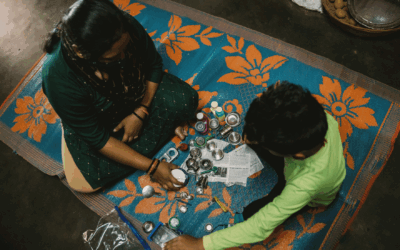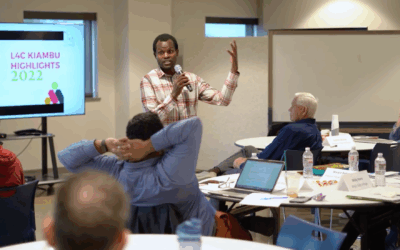Throughout the world, in all cultures and religious traditions, celebrations are times of togetherness, enjoyment and sharing. However, these times can be challenging and emotionally charged for children who are in care. This can be for reasons including being away from family, encountering new traditions or missing familiar ones, and possibly feeling lonely and out of place. We asked several of the organisations we work with how they approach times of celebration for the children and families they support.
KEY ASSETS NEWFOUNDLAND & LABRADOR– CANADA
We notice that emotions can heighten for young people in care during the holiday seasons. Some feel excited, some feel frustrated and lonely, while others are sceptical due to their lived experiences. We find it’s good to have a special daily check-in with them during the holidays as they process big thoughts and feelings until they feel settled and comfortable.
“Shortly before Christmas, a teen boy came into our care after living with another foster family for five years. His biological mom passed away when he was quite young, and we spent time learning about traditions he enjoyed. My husband, whose mother also passed, has an annual Christmas tradition where he places an angel ornament on a special tree filled with angels in memory of the people no longer with us. The child in our care wanted to participate, and this year will mark the fifth Christmas he and my husband have placed angels on the tree together.”


HARUM – INDONESIA
Indonesia still has a strong tradition of celebrating, especially Eid al-Fitr for Muslims, which happens at the end of Ramadan. We gather with family and relatives, eat traditional delicacies, and children usually receive Eidi (money and gifts given by elders). During Eid, children who live in foster families can have the opportunity to gather with their birth family or relatives when it’s safe, possible and supported by our team. They can’t imagine what it’s like to celebrate the holidays when they’re not with their birth families and often feel very sad. The meaning of family for them can hardly be represented in words, as said by 16-year-old Siti in Ponorogo East Java, “The point is, family is like heaven for my life”.
KEY ASSETS ONTARIO – CANADA
Holidays can be emotional times for children in care that may be connected to trauma, loss and grief they’ve experienced. Often the biggest challenge is that you are not with the people you are accustomed to celebrating with or are not familiar with the celebrations or customs being celebrated.
Our advice to carers is to actively listen to the children and young people, respect their needs and wishes to not participate in the celebrations, and incorporate the child’s customs, traditions and celebrations into your celebrations. If traditions are overwhelming, allow the young person space to support their emotional wellbeing. You can also consider allowing them to create new rituals and experiences.


FAM – MADAGASCAR
Christmas can be challenging for the families we support, as they were excluded from such celebrations for many years due to living in extreme poverty on the street. While the deeper meaning of Christmas represents Jesus’ birth, the materialism that has become part of the celebrations can sadly mark the massive divide between the marginalised and the privileged.
It’s also challenging for the families we support to be with their extended families as they are out of touch often due to tragic circumstances that led to them being on the street. Our community and social workers are sensitive in the support we provide these families during the holidays. They visit them with special food, drinks and small gifts for the children. They take time to be with them and celebrate with them and their new friends in the community.
For the first time, these families felt accepted and included during the holiday celebrations and know they are part of a community that cares for them and their children.
UDAYAN CARE – INDIA
Often, children who are not with their birth families want to celebrate holidays including Diwali, Eid, Dussehra, Gurupurb, or Christmas, but need support and companions to enjoy. As part of our Families Together programme, we ensured that children come together and were engaged in planning and preparing for the celebrations. During Diwali, the festival of lights, the children decorated diyas (lamps) and shared them with each other in the community. They also made sandwiches and shared them with other families in the surrounding area. While doing this, they experienced joy and happiness and learned to share and be grateful for each other, making the celebration memorable and meaningful. A small effort like this can bring happiness to others that they cannot experience when alone.




